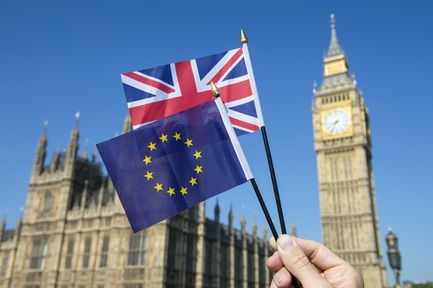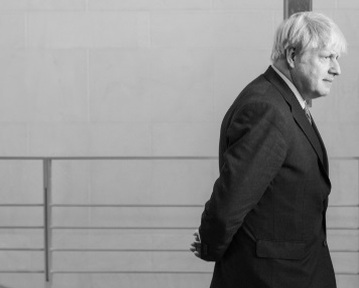Social care neglected because of Brexit, say public
More than half (52 per cent) of people think social care policy is being neglected because of Brexit, according to a poll of the British public.

A lack of government action on reforming social care is the fault of too much focus on Brexit, according to a poll by the financial services group Just Group, which has surveyed 1,000 people.
In turn, the government’s neglect of social care has put more financial pressure on those needing care and their families, reveals the group's 2019 Care Report.
In spite of Boris Johnson’s promise to sort out social care on the day he first entered 10 Downing Street, no timetable for a social care green paper has been set, although the Prime Minister has said there would be money for social care in the spending round scheduled for Wednesday 4 September.
Stephen Lowe, group communications director at Just Group, said “Brexit is undoubtedly a big issue but the parlous state of today’s social care system is letting everybody down – councils, care homes, care workers and of course the residents who are most vulnerable of all.

"The promise of more funding is welcome but it doesn’t address the total absence of any long-term policy to address the fundamental problems within the social care system.
“The public isn’t fooled by promises and no action.”
Care home fees paid by councils are below the costs of running care homes - a fact that has led care home providers to demand more funding be made available by Boris Johnson’s government.
Residents of care homes in England who pay their own fees are charged on average £12,500 a year more than those whose bill is picked up by their local authority, according to Just Group's analysis of data from the Competition and Market Authority.
The average annual fee for self-funders is £44,252, far higher than the average fee paid by councils which is £31,720. The difference between the two groups is £12,532, amounting to more than £1,000 a month extra for self-funding residents.
Mr Lowe said: “These figures start to explain why people think care fees are unfair when those footing their own bill are charged many thousands of pounds a year more than another person who could be in the same home and receiving the same care but paid for by the local authority.”
While on the Conservative leadership campaign trail, Boris Johnson said: “It is inequitable, some families having to raise hundreds of thousands in order to pay for the costs of care, others are getting those costs met, or at least partly met. There is a real sense of anxiety this is causing and we need to address it.”
Over 45s ‘crossing fingers’ but not planning for later life
Just Group, which manages over £19 billion of customers’ retirement savings, published its 2019 Care Report which reveals the public are more now waiting before making any plans for themselves – with more than half (51 per cent) of people aged 45+ delaying making plans until a social care policy is confirmed by the government.
“For many people, planning for later life care consists of crossing their fingers and hoping it doesn’t happen to them but when it does, the cost is a real eye-opener” said Mr Lowe.
“Three-quarters of over 45s who had been involved in arranging care said they were surprised by how little financial support the State provides and nearly nine in 10 (88 per cent) were shocked at how expensive care is.
“With the care crisis deepening, the government must take the lead and be clear that reforms are on their way.”
Latest News
 29-Jul-24
Dementia Bus gives carehome.co.uk staff insight into life with dementia
29-Jul-24
Dementia Bus gives carehome.co.uk staff insight into life with dementia
 01-Mar-24
Find out the top care homes in 2024
01-Mar-24
Find out the top care homes in 2024
 21-Mar-23
UK's top care homes in 2023 revealed
21-Mar-23
UK's top care homes in 2023 revealed
 03-Jan-23
carehome.co.uk launches free care helpline
03-Jan-23
carehome.co.uk launches free care helpline
 13-Dec-22
5 mins with Emily Whitehurst, chief operating officer for Constantia Healthcare
13-Dec-22
5 mins with Emily Whitehurst, chief operating officer for Constantia Healthcare